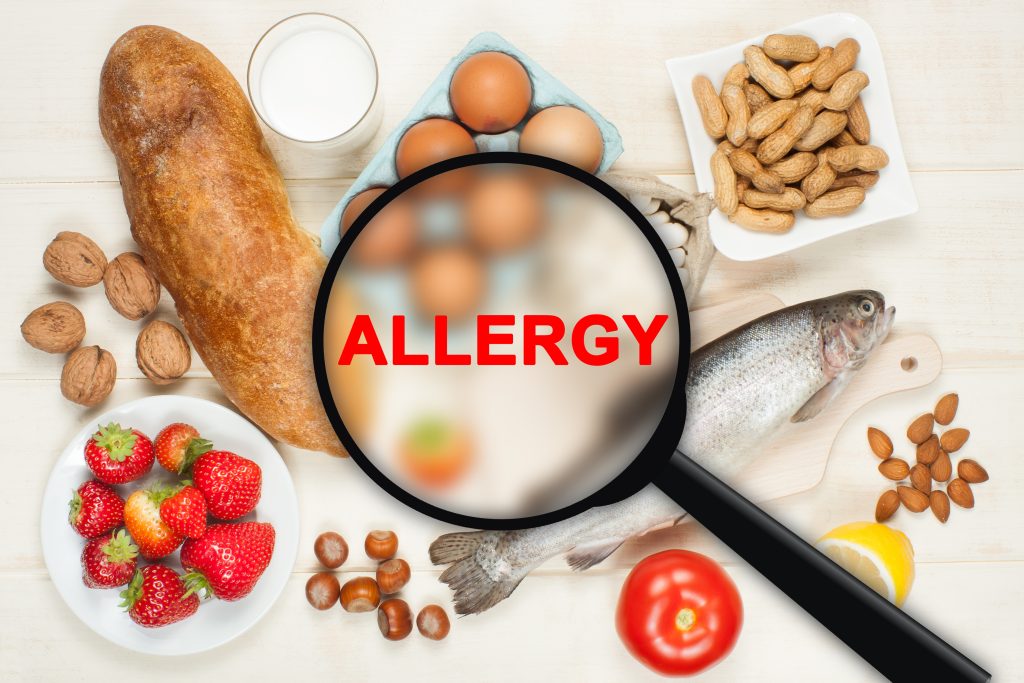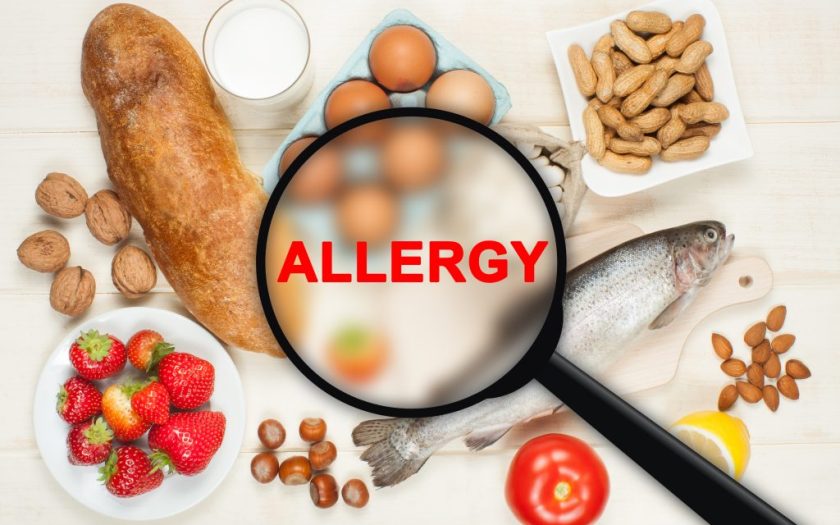Food allergy and its symptoms
When it appears food allergy, the symptoms of an allergic reaction will appear immediately after consuming food, certain foods or within the next few minutes, in any case very quickly. If people have developed a severe allergic reaction, anaphylaxis can occur, which can be life-threatening if the allergic reaction is not responded to in time.
There are typical foods that are very likely to be the cause of food allergies. If you suspect that you are allergic, your child or someone close to you is allergic to certain foods, you should be instructed in the symptoms so that you know what to do in the event of an allergic reaction. Symptoms of food allergy may include burning and itching in the mouth, rash with redness anywhere on the body, swelling of the throat, mouth or face, inability to swallow and breathe, weakness and dizziness, vomiting, nausea, and abdominal pain, as well as vomiting. swollen eyes, but also sneezing.
If more severe symptoms of an allergic reaction appear that indicate anaphylaxis, call an ambulance without delay because every minute is precious. At that point, it is necessary to act quickly and efficiently to prevent death.
Symptoms indicating you might have a food allergies:
- Tingling or itching in the mouth
- Hives, itching or eczema
- Swelling of the lips, face, tongue and throat or other parts of the body
- Wheezing, nasal congestion or trouble breathing
- Abdominal pain, diarrhea, nausea or vomiting
- Dizziness, lightheadedness or fainting

Food allergy testing
If you suspect that you or someone close to you is tormented food allergy, you will need to perform testing, or your loved ones. This is an ideal way to check what exactly you are allergic to so you know which foods or ingredients you should avoid in your menu. The most common foods that people are allergic to are milk, eggs, soy, nuts, grains, shellfish and fish. Some people, even with only small consumption of such food, can have very serious allergy symptoms.
Food allergy testing will show whether you have an allergy to a certain food or just an increased intolerance to that food. Very often, food intolerance can be misinterpreted as a food allergy, so it is necessary to do testing to be sure. Testing can be done by oral testing where the doctor will give small amounts of certain types of food to see what exactly will happen.
Testing can also be done by the elimination method, by gradually avoiding food in your daily diet that you suspect would cause an allergy, but you will not know if it is an allergy or intolerance to these foods. The safest test is one that is done by drawing blood or using a puncture test on the skin inside the forearm, which will be performed by a specialist allergist.
Food allergy and how to avoid it
Once you have done the testing you have learned exactly which foods you are allergic to, you need to adjust your diet and eliminate those foods. Try to avoid as much as possible the intake of food that you know you have food allergy. Watch out for everything you consume and if you eat in restaurants, always check that the food may not contain any of the ingredients that cause allergies in you. This can be especially the case with cakes when you will not know if they may contain nuts to which you are allergic.
The packaging of certain products contains a description of the product that explains whether the product may contain some of the individual allergens that are most common. The most common allergens are cereals, milk, soy, peanuts, eggs, nuts, shellfish and fish. It is possible that this particular product does not have to contain this, but it must have a warning if these typical allergens are also processed in the same factory, so they may accidentally get traces of the product you have chosen.
If you are reluctant to read the labels on each product, consult with experts such as a nutritionist who will put together a diet plan for you. Pay special attention to allergens that may be in the food you eat in restaurants and canteens. Your food allergy may go away over time, but it is not a permanent condition, and you may also be allergic to other foods to which you may not have been allergic before.
More health news: Sinus Infection – symptoms and treatment
source: mayoclinic
